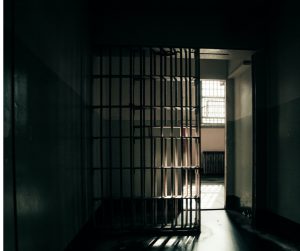Minority Gangs in Singapore Prisons: Prisonisation Revisited
January 17, 2022

The Misuse of Drugs (Amendment) Act was passed by Parliament on 15 January 2019. One of the Act’s provisions allows repeat drug offenders who are without concurrent offences a chance for rehabilitation at the Drug Rehabilitation Centre. The Singapore Prison Service hopes that the enhanced rehabilitation measures for such offenders will lower the recidivism rate.
Prison gangs are often assumed to be imported from the streets, or are formed to overcome the challenges of prison life. However, such a perspective overlooks how gang culture and illegitimate practices can be ‘exported’ out from prisons and onto the streets.
In ‘Minority gangs in Singapore prisons: Prisonisation revisited’ (Australian & New Zealand Journal of Criminology, 2020), Associate Professor Narayanan Ganapathy (NUS Sociology) and Dr Lavanya Balachandran (NUS Asia Research Institute and Centre for Family and Population Research) interviewed former prison inmates who were involved in street and prison gangs. Through ethnographic research methods and semi-structured interviews, they show how minority prison gang culture of the Omega gang is influenced by the struggles Malay-Muslim minorities face on the streets. Furthermore, the prison gang culture is ‘exported’ to the street to assist other minorities in managing discrimination and inequalities they face from their Chinese secret society rivals.
Omega’s gang culture is formed to resist racial discrimination they face in prisons and on the streets. In prisons, the numerical advantage of minorities empowers them to challenge the Chinese majority. On a personal level, the Omega gang seeks to affirm the masculine and racial identities of its Malay-Muslim members. Organisationally, Omega combines their gang culture with selected values from Chinese gang culture. They thus turn Chinese gang values against their Chinese rivals by instilling fear and coercing respect.
Moreover, prison gang culture is ‘exported’ onto the streets. Omega’s Malay-Muslim members are encouraged to ‘think money, think big [and] pay people to get things done’ like the Chinese do. This informs the illegitimate practices of the streets. Omega members see themselves as doing good by providing an opportunity for Malay-Muslim minority to gain solidarity within their community. They also go the extent of operating illegitimate businesses to provide financial support for needy Malay-Muslims. Through this article, A/P Ganapathy and Dr Balachandran show how illegitimate practices of gang culture are created in response to sociocultural challenges from the streets and in prisons.
Read the article here.
